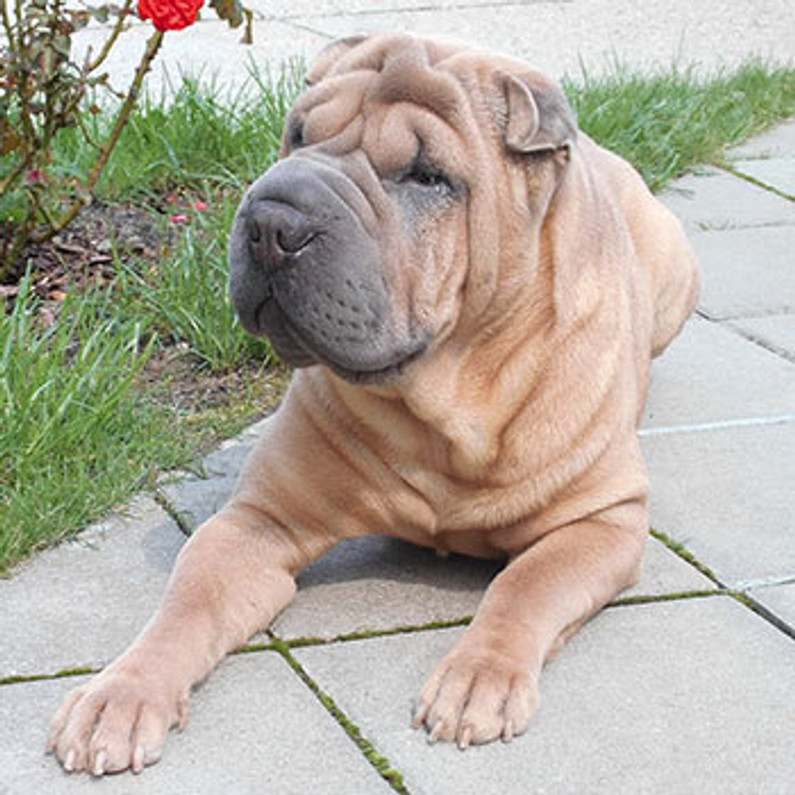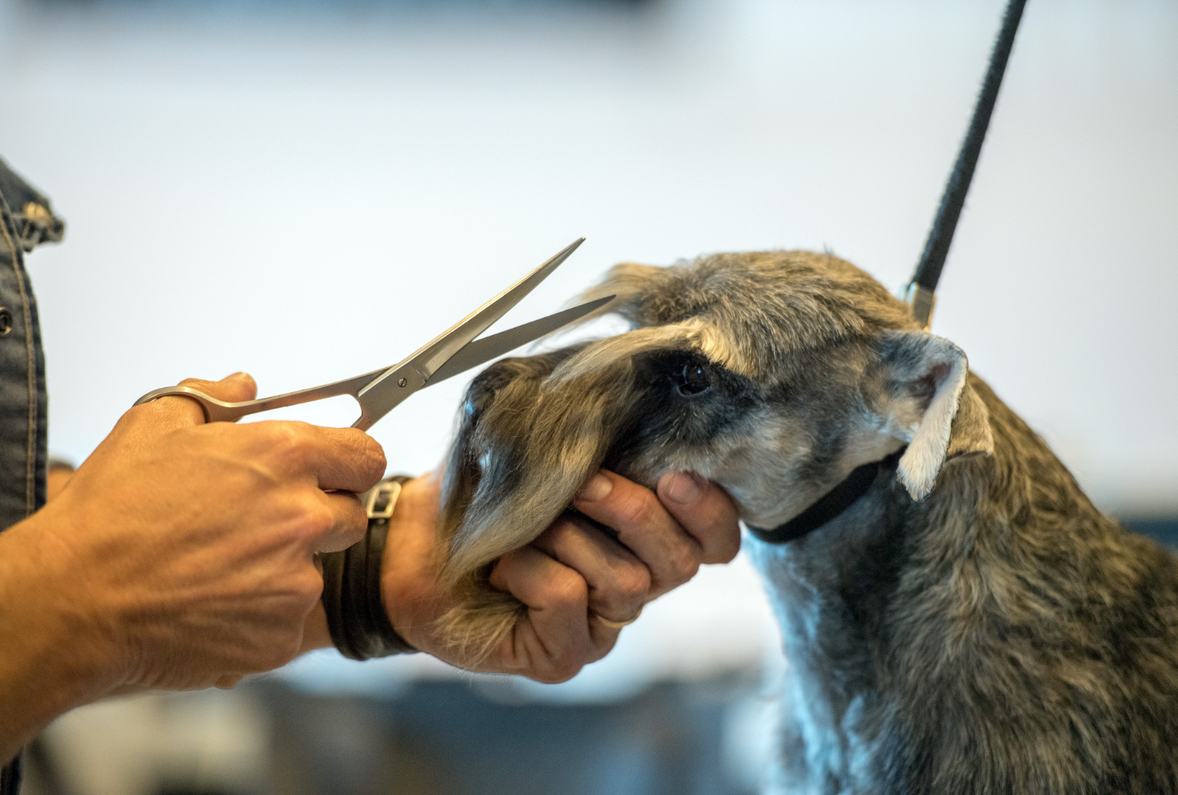Shar-Pei
The Shar-Pei is believed to originally come from the Guangdong province of China. Though the exact ancestry of this breed is unknown, they may be distant relatives to the Chow Chow, being that the two share the same blue-black tongue. The Shar Pei is considered to be a very ancient dog breed. Images of the Shar-Pei show up on pieces of pottery, which suggest that this breed existed during the Han Dynasty (200 B.C.!).
The Shar-Pei was originally kept as a farm dog and was used for hunting, guarding the home and herding and protecting livestock. Eventually, the Shar-Pei was used in dog fighting. Their rough coat and wrinkled skin were originally used to help fight off wild boar, but then these traits became advantages in dog fighting.
The population of the Shar-Pei began to diminish during the Communist Revolution. Along with much of China’s art and tradition, the Shar-Pei was outlawed and destroyed. At the time, they were considered to be one of the world’s rarest dog breeds. Luckily, a business man named Matgo Law saved the breed. Mr. Law was able to rescue and export the Shar-Pei to the west, and by the 1980s the Shar-Pei craze began. Many of the Shar-Pei today, stem from the original dogs Mr. Law brought to America. In 1992, the American Kennel Club recognized the breed as a member of the Non-Sporting group.
The Shar-Pei is known for being an extremely independent and stubborn dog, as well as suspicious of strangers and other dogs. But at the same time, they can become extremely devoted to their family and are known for their intelligence. They are a breed of dog that needs constant structure, socialization and proper training or they can become territorial and even sometimes aggressive. Even with continuous training and early and constant socialization – a Shar-Pei owner should always remember their breed’s guard dog tendencies.
Grooming with the Shar-Pei can range from easy to extremely strenuous. The breed comes in three different coat types: horse, brush and bear. The uncommon horse coat is rough and almost prickly, while the brush coat is slightly longer and has a bit more of a smooth texture to it. Then there is the bear coat, which is completely different from the other two coats. The bear coat does not meet the breed standard, thus Shar-Pei with bear coats cannot be shown in AKC conformation shows, but it will not stop them from being a loving companion. The bear coat is similar to the Chow Chow's coat, and requires a lot of care and attention. The Shar-Pei should be brushed and have their ears cleaned, teeth brushed and nailed trimmed on a regular basis.
Shar-Pei can be extremely sensitive to heat, due to their wrinkles, so provide them with shade on sunny days and always have clean drinking water available. It is also important to clean the wrinkles on your Shar-Pei's face! Also, be sure not to over exercise them during extreme heat as they are considered a brachycephalic breed and are susceptible to heat stroke due to a reduced ability to move air.
Unfortunately, during their popularity during the 80s, the breed suffered from rushed breeding, resulting in a few health concerns in the breed. A common problem is entropion, where the eyelashes curl inward thus, irritating the eye of the Shar-Pei. If left untreated, it can cause blindness. This condition can and should be fixed with surgery.
Food allergies are also common with the Shar-Pei (ex: foods containing soy, corn, sugar and wheat), many breeders recommend feeding their Shar-Pei grain free diets. Feeding your Shar-Pei poor-quality foods can result in skin irritation, sores and major itching. Shar-Pei are primarily known for skin infections due to allergies, which luckily is becoming rarer over the years thanks to responsible breeders and their lines. Remember, if you believe the Shar-Pei is right for you and your family, be sure to find an experienced Shar-Pei breeder. Many ailments that the Shar-Pei faces are nearly nonexistent in litters from experienced breeders.
For more information about the Shar-Pei and their health issues, the Chinese Shar-Pei Club of America is the AKC National Parent Club and features a wealth of information on the breed.
Recent Posts
-
Spring Into Action: Fun Exercise Ideas for Your Canine Companion
Spring Into Action: Fun Exercise Ideas for Your Canine Companion As the winter chill melts away …Mar 26th 2024 -
Understanding Dog Grooming Shears: Cutting Through the Noise
Understanding Dog Grooming Shears: Cutting Through the NoiseDog grooming, or in particular trimming, …Feb 5th 2024 -
Choosing the Perfect Bed for Your Dog: A Guide to all Types of Dog Beds
Types of Dog Beds: Choosing the Perfect Bed for Your DogEvery dog owner knows that a comfortable pla …Jan 26th 2024




